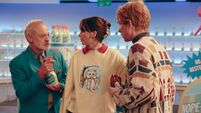In her literature era: The literary links sprinkled into Taylor Swift's music

SWIFTIAN: The world’s biggest pop star likes to slip in references to the history of literature in her music. Picture: Andre Dias Nobre/AFP via Getty Images
American and English universities offer courses on her songwriting, while her diehard fans parse every lyric of every song but there is no denying that Taylor Swift knows her literature, sprinkling references to plays, poems and books throughout her lyrics. It has even been reported that she is a distant relative of the poet Emily Dickinson. Swift will be right at home when she lands in Dublin, a city with no shortage of literary links and home of her namesake Jonathan — there is no evidence of them being related but following the recent revelation that she is a Derry girl, who knows? Here, we look at some of the literary allusions in her songs.







